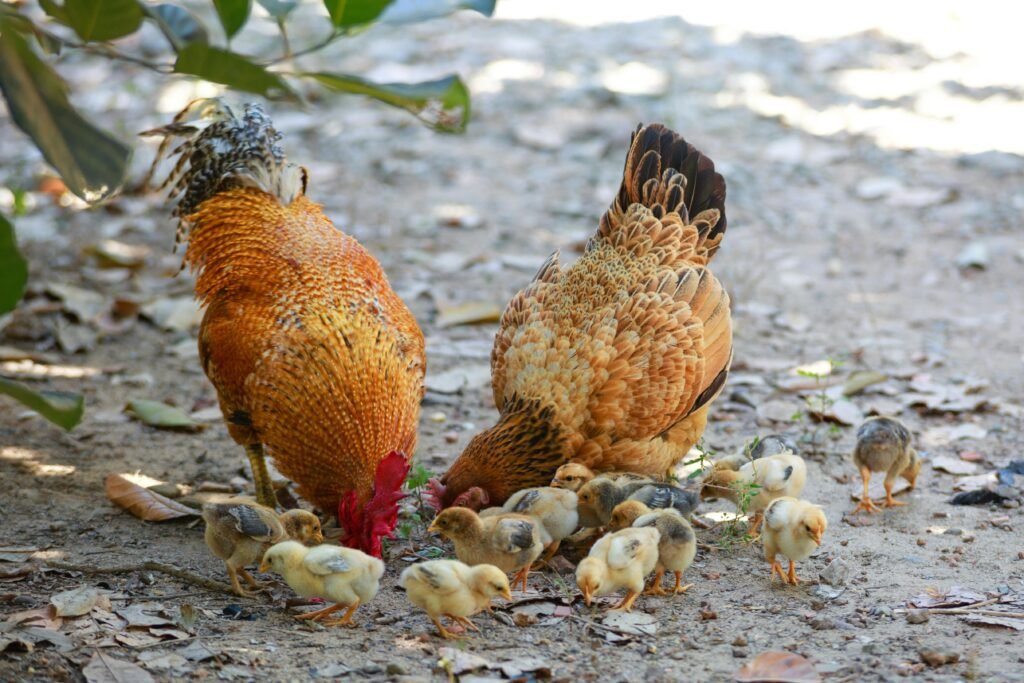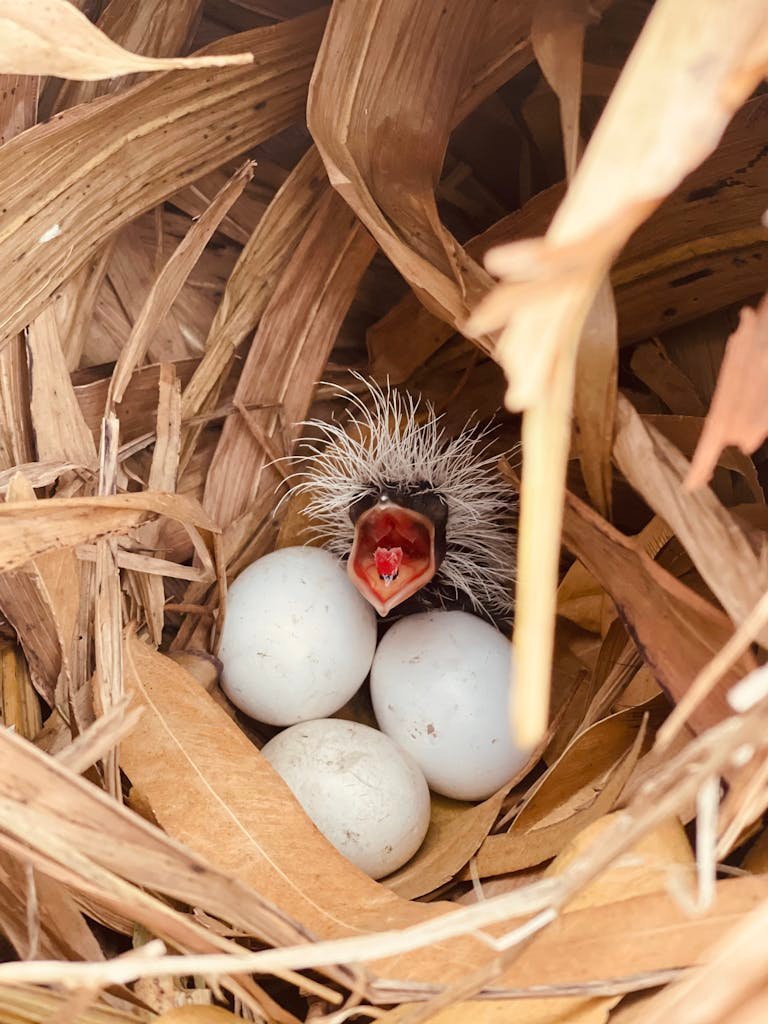Chicken Egg Mystery: Can a Hen Lay 2 Eggs Daily?

When it comes to understanding chickens and their egg-laying capabilities, many questions arise, one of the most popular being, Can a chicken lay two eggs a day? The short answer to this is rarely. While it isn’t impossible, it’s certainly uncommon for a chicken to lay two eggs within a single day. Laying eggs is both a biological and energy-related process; it also depends on the health of the hen who lays those eggs.
In this article, everything about Can a Chicken Lay 2 Eggs a Day? the reasons for a hen to lay only one egg a day, and other circumstances influencing are going to be discussed along with a few circumstances when two eggs can be laid in a day.
The Egg-Laying Process
To understand why two eggs in a day is a rare event, it’s essential first to look at how a hen produces an egg. It is very complicated to lay an egg and the conditions have to be right to produce just an egg in one day.
Egg Formation
Ovum development in a hen is a complex, complicated process that takes about 24 to 26 hours before an egg is finally perfected. Here’s how it breaks down:
- Yolk Formation: The process begins with the yolk formation in the ovary. The yolk is the premature stage of an egg and is vital for the nutritional value of the egg. After this period the center part known as the yolk migrates into the oviduct.
- Addition of Egg White (Albumen): In the oviduct, the yolk gets a coat of Albumen, which is the egg white-bearing fluid that acts as a cushion for the embryo, if the egg is fertilized.
- Shell Formation: Finally, the egg moves into the shell gland, where it receives its protective outer layer, the shell. Spherical in shape, this shell is chiefly constituted from calcium carbonate though it calcifies to form a protective cover to the contents of the egg.
Shell formation process is what takes the most time since the calcium layers have to accumulate for several hours. This whole cycle is so optimized that it takes almost an entire day to do this cycle twice.
Daily Cycle
A normal cycle of laying eggs takes place according to the 24-hour cycle for a normal healthy hen. A hen lays one egg per day, it carries on with the cycle as soon as the egg is laid. Making this process complex, though it has become a well-oiled machine and is fairly repetitious.
- Natural Timing: Once an egg is laid, the hen’s body rests for a short period before the cycle starts again. This restart time, though, varies in minutes from one hen to another but is normally synchronized with the day and night periods.
- One Egg per Cycle: Because of the time required for shell formation, each cycle generally results in a single egg.
This is helpful and creates an effective circadian rhythm for the hen so the hen can constantly lay her eggs without effort which would drain her energy reserves.
Why Two Eggs in a Day is Uncommon
Biological Constraints
The primary reason two eggs a day is so rare comes down to biological constraints. The process of egg formation, especially the shell requires time and cannot be hurried in a way that will detriment the egg.
- Complex Egg Development: The biological cycle of egg development is protracted as well as progressive in the sense that one step cannot be completed until the previous step has been completed. It is even hard for a hen to commence laying another egg while it is yet struggling with the former one.
- Limitations of the Oviduct: The oviduct of a hen is capable of maturing only one egg at a time. The effort to fertilize two eggs at the same time would cause traffic jams and block the entire process altogether.
- Timeframe for Shell Creation: As discussed, the shell formation alone requires several hours. For a second egg to be formed within the same day, this part of the process would need to be drastically sped up, which hens are simply not equipped to do.
Energy Demands
Another constraint is that laying an egg is energy intensive; thus, egg production did not progress as desired earlier and had to be fixed.
- Calcium Requirements: The shell alone requires a significant amount of calcium, and hens need to source this from their diet. The creation of the second shell means that the hen requires approximately double the amount of calcium to revert which is something most hens are unable to do as they have a digestive system that cannot efficiently process that much calcium.
- Overall Nutritional Demands: In addition to calcium, proteins, vitamins, and other minerals are also used for egg formation. In order not to overburden the hen with a high-density diet in a single setting, the hen can only afford to lay about two eggs on a daily basis, so laying two eggs per day would put a lot of pressure on the nutritional capacity of hen and many of them would end up being malnourished and falling prey to so many diseases.
- Physical Exhaustion: The physical energy required to lay an egg daily has already been large. Attempting the same twice would become even more tiring and stressful for the hen and would, therefore, cut much more into her productivity and health going forward.
Stress and Health Factors
Sometimes, the hens are also unable to lay eggs consistently due to the effects of environmental stressors or complications in health. However, in most cases, these factors lead to reduced egg production rather than increased output.
- Stress Factors: Stress is likely to be caused by predators, changes in weather, overcrowding, and noise to name but a few and these tend to delay egg production rather than hasten it.
- Health Issues: Pas or nutritional deficiencies also upset the natural rhythm because the bird’s body heals before it breeds. A normal hen lays two eggs in one day, so if a hen is stressed or is unhealthy it will not lay an egg in a single day.

When It Might Happen
While rare, there are situations where a hen might lay two eggs in one day. These occurrences are typically due to unique circumstances rather than a regular pattern.
Younger Hens
The young hens that are still in the prime laying age, maybe between 6 months to 2 years can sometimes lay two eggs in one day due to hormonal changes. But this is mostly done once in a while or rarely, as opposed to being done every day.
- Hormonal Surge: Firstly, during the first period of laying the young hens might have hormonal Alterations that hasten the laying process for some time.
- Peak Laying Years: Chickens in their peak laying years have the highest reproductive drive, and their bodies may sometimes attempt to lay more frequently due to hormonal signals.
- Irregular Patterns: Sometimes there may be irregularities in young hens because their egg-laying cycle has not yet become fully developed. But these usually fade off as the hen’s body gets used to producing one egg per day.
Specific Breeds
There are some types of chicken that are selected for the purpose of laying eggs numerous times thus, would likely lay two eggs per day once in a while compared to others.
- High-Producing Breeds: There are common commercial layers known to lay a lot, including the White Leghorn and the Rhode Island Red. However, even those breeds generally lay only one egg a day, but sometimes two, because of their high fertility rates.
- Genetic Factors: Some hens may have genetic predispositions that enable a higher rate of production, though even this is limited by their biology.
- Unpredictable Patterns: In high-producing breeds, double lay is not very possible and not steady at that so you cannot rely on it. How To Look for the Signs That Your Hens Are Double Yolked
Observing Your Hens for Double Egg-Laying
If one of your hens laid two eggs on a particular day, then it’s high time that you pay much attention to demeanor, feeding and nesting fraternity.
Signs to Watch For
- Fatigue and Decreased Activity: If a hen moves very slowly or looks very sleepy after laying two eggs then it is clear that its body is under pressure.
- Increased Appetite or Calcium Consumption: Hens may instinctively consume more food or calcium sources if they’re producing extra eggs.
- Behavioral Changes: Changes to nesting such as increased nesting behavior or other signs means a hen is trying to lay more often. Encouraging Reddish Healthy Eggs
Supporting Healthy Egg Production
For hens that seem inclined to double-lay, or if you simply want to support healthy laying cycles, there are ways you can ensure they have the nutrients and environment they need:
- Calcium Supplements: Giving them something with calcium such as oyster shells will fortify the shell that they have.
- Balanced Diet: There is also a need to take moderation of foods, having protein, grains, and green parts of plants in their diet.
- Minimizing Stress: Minimise anything that might put pressure on your hens and this includes noise, rapid changes, and crowdedness.
Final Words
Though it is scientifically possible that a chicken can lay two eggs in a day, this does not happen in normal circumstances. The full process of egg production is very complex and is designed to enable the hen to lay an egg per day in the most efficient manner. Biological constraints, energy use, and environmental pressures compel the hens to lay only a single egg within a 24-hour period at best.
Exceptions to this rule do exist, particularly in younger hens with fluctuating hormones or certain high-producing breeds. However, even in these cases, double-laying is uncommon. So, if you’re caring for a flock, expect a maximum of one egg per hen per day on average.





